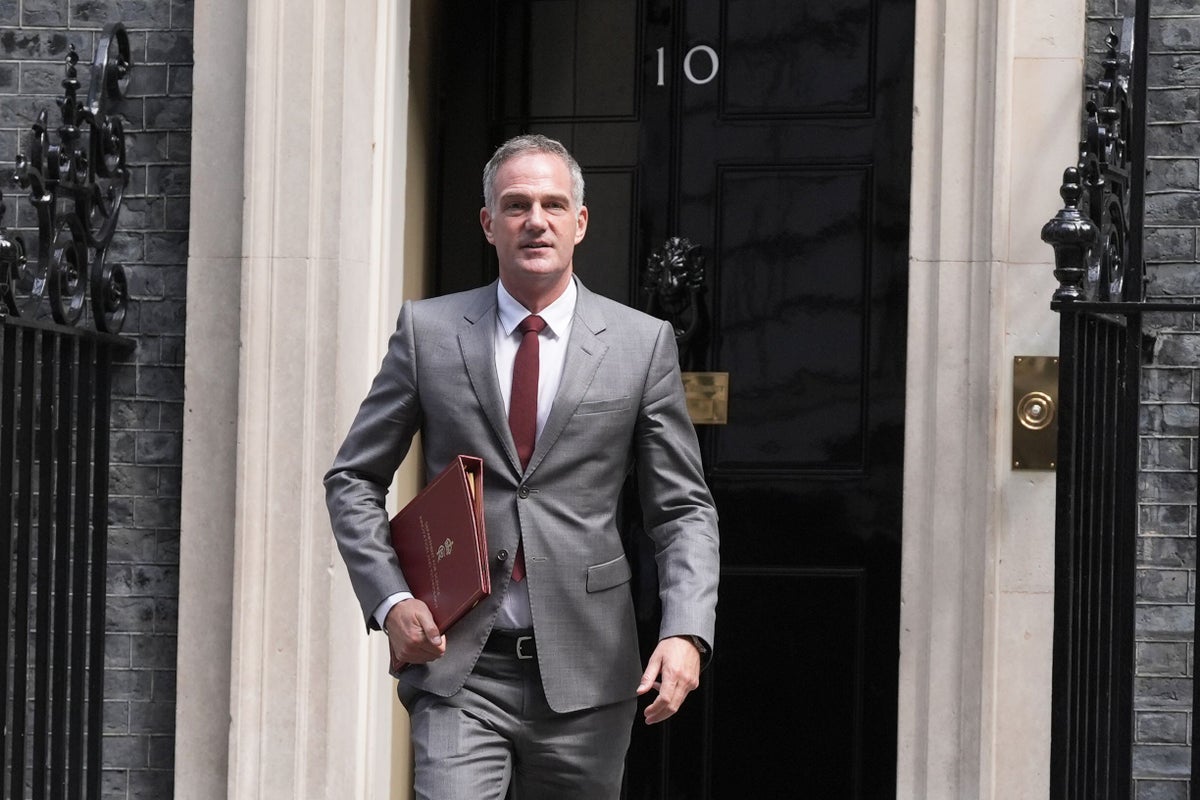
Children could face a limit on using social media apps to help youngsters “take control of their online lives”, the Technology Secretary said.
Peter Kyle said he wanted to tackle “compulsive behaviour” and ministers are reportedly considering a two-hour limit, with curfews also under discussion.
The Cabinet minister said he would be making an announcement about his plans for under-16s “in the near future”.
He told Sky News: “I am looking very carefully about the overall time kids spend on these apps.
“I think some parents feel a bit disempowered about how to actually make their kids healthier online.
“I think some kids feel that sometimes there is so much compulsive behaviour with interaction with the apps they need some help just to take control of their online lives and those are things I’m looking at really carefully.”
Sky reported that a two-hour cap per platform is being considered, while night-time or school-time curfews have also been discussed.
Mr Kyle said: “We talk a lot about a healthy childhood offline. We need to do the same online.
“I think sleep is very important, to be able to focus on studying is very important.”
He said he wanted to “tip the balance” in favour of parents so they were “not always being the ones who are just ripping phones out of the kids’ hands”.
Mr Kyle also said it was “total madness” that some adults were able to use apps or gaming platforms to contact children online.
He said “many of the apps or the companies have taken action to restrict contacts that adults, particularly strangers, have with children, but we need to go further”.
“At the moment, I think the balance is tipped slightly in the wrong direction.
“Parents don’t feel they have the skills, the tools or the ability to really have a grip on the childhood experience online, how much time, what they’re seeing, they don’t feel that kids are protected from unhealthy activity or content when they are online.”
In a separate interview with parenting site Mumsnet, Mr Kyle said he was “deeply concerned” about addictive apps being used by children.
Speaking to Mumsnet founder Justine Roberts on Monday, the Technology Secretary said he would be “nailing down harder on age verification”.
He said: “I think we can have a national conversation about what healthy childhood looks like online.
“We do it offline all the time. Parents set curfews and diet and exercise as part of a language and a vocabulary within families.
“We haven’t had that national debate about what health looks like and a healthy childhood looks like online yet.”
Schools in England were given non-statutory Government guidance in February last year, intended to stop the use of phones during the school day.
But the Conservatives have been calling on the Labour Government to bring in a statutory ban on smartphones in schools.
Mr Kyle said: “Smartphones should not be used routinely in schools.
“Now, there might be some classes where they are brought in because of a specific purpose in the class, but that has to be determined and it should be the exception not the norm.”
He added: “If we need to nail down hard on it, we will nail down hard on it.
“But please think very carefully about asking politicians to pass a law which criminalises by definition.
“Because if you pass a law that doesn’t criminalise it’s not a law that means anything”.
A series of already-announced measures to protect children will come into effect from Friday.
The codes of practice set out by Ofcom include requiring firms to ensure that any algorithms used to recommend content on their platforms must be configured to filter out harmful content from children’s feeds.
In addition, the riskiest platforms, such as those hosting pornography, must have effective age checks to identify which users are children.
The checks could be done using facial age estimation technology, asking users to provide photo-ID for verification or a credit card check.
